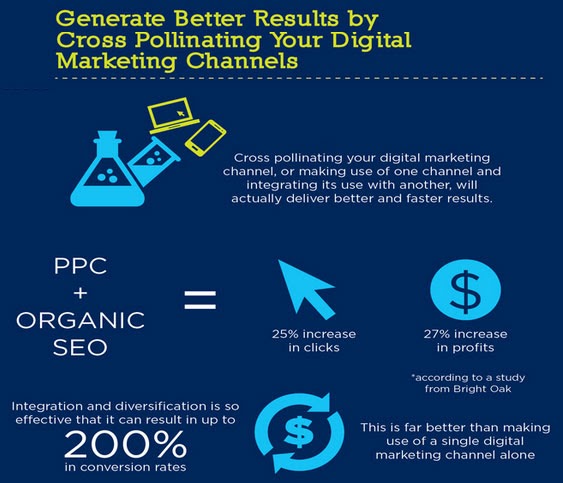
Table Of Contents
- SEO Guide for Beginners
- Benefits of Using SEO
- 7 Must-Know SEO Facts
- 5 Key Takeaways
- Conclusion
- FAQs
SEO is a crucial part of the current digital media marketing landscape, and it doesn’t seem like it’s going away anytime soon. If you want to survive in this media marketing setting, it is important for you to learn the ins and outs of SEO. Using SEO is the most effective way to get more traffic to your website. So, here we have compiled a go-to guide for you to refer to if you are just starting out on your SEO journey.
SEO Guide for Beginners
So, what does SEO mean? SEO or search engine optimization is a collective technique, tactic, and strategy required to get your website displayed towards the top of the Google (or any other search engine) search engine result page (SERP). SEO is the process of getting your website to rank high on the search results, which will lead to increased traffic to the website.
According to expert Phil Frost, “SEO is about partnering with Google to provide the best search results for Google’s users.” A large part of SEO involves finding a way to enhance the content you write to make sure it performs well under Google’s algorithm. The simple fact is, Google only shows its users websites that it believes have the answers to what they are looking for.
There are different types of SEO. Each one requires different planning and skills to be used successfully. These include the following:
1. On-page SEO
As the name suggests, on-page SEO is all about what is presented on the website page, including keywords, images, headings, subheadings, and meta titles used in the web content.

2. Off-page SEO
Off-page SEO refers to the content not available on the page. This includes generating backlinks and outreach. Off-page SEO focuses on building a “good reputation.” It’s essentially PR and marketing of your website so as to make sure it gets more support and recognition from other websites in a genre similar to yours.

3. Technical SEO
Similar to off-page SEO, technical SEO has nothing to do with the content presented on the page. Instead, it deals with technical SEO, which is meant to improve how the website functions so that search engines can search for it and index it easily. This, in the end, makes the website more visible to the people searching. This includes site architecture, indexability of the site, speed of the site, and user interface.
4. Local SEO
Different countries have different languages, so the content they produce and view should also, ideally, be in those languages; it often is. This means the keywords that work in one country might not work in another. Even if two countries speak the same language, they have different target audiences. This is where local SEO comes into play. This could include off-page, on-page, or even technical SEO but caters to the local population that falls under the target demographic for your website.
SEO includes a range of elements in the SEO toolkit that enhances the ranking of a page on Google. The most prominent of these tools are,
- Keyword research
- Competitor analysis
- Reporting and analytics
You need to keep in mind that you have to maintain your content quality. Your content is the most important part of the website. The idea is, once you’ve produced good content, SEO will enhance it in a way that it performs well with the Google algorithm or algorithms of other search engines. So, here are a few things you should focus on when working on producing this content,
5. Titles
The headline on the top of the page attracts the most number of people while being the most prominent thing that the audience and, therefore, Google focuses on. The meta title is just as important.
6. Content
The accuracy, credibility, and readability of the content also matter along with its quality. The reader will not care enough to stay engaged if the content is not passionate, informative, and knowledgeable.
7. Rich content<h3>
People are quickly becoming more fond of multimedia content. With the growth of the digital age, people prefer – even expect – to have richer content that is supported with not just information but also with audio, videos, and visuals to boot. Textual content needs to be presented alongside these to interest both the viewers and Google.
8. Internal linking
Internal linking allows you to connect one page of your website to another. Google uses internal links to decide what is important on your website. It also uses internal linking to find other pages on your website.
9. Freshness
This one is relatively self-explanatory. When people search for content, they wish to gather as much current information as possible. You need to make sure the content you produce is up to date while also being as fresh as possible.
10. Outbound links
Outbound links take you from one point on your website to another. These links are useful in helping Google check the accuracy of your information while also helping prove the credibility of both the writer and the site. Contrary to popular belief, outbound links are a positive sign for Google.
Benefits of Using SEO

Apart from the obvious advantage it offers in ranking your website higher on the SERP, SEO has the following benefits to consider:
1. Brings in customers via organic traffic
More than 50% of all web traffic flows due to organic searches. 60% of marketers have stated that the highest quality leads they receive are from SEO-engaged customers. When your website ranks high on the SERP, it invites more people to click on it. SEO helps with that.
When you rank on the first page of Google, you become more visible to your customer base. Moving to the top position can practically increase your active visitor clicking percentage by double. Also, asserting a Featured Snippet (top of page component) ensures that there is more than one way to reach your website, both on the first page.
2. Leads to a trustworthy experience
When you follow the SEO protocol, you are more likely to follow its rules and regulations. The credibility of the information you provide also factors into the Google algorithm when it ranks websites. The higher you make it up the SERP, the more trustworthy your website is.
The advantage for you is that it won’t simply assist you with ranking better on the SERP and provides you with more exposure. It will likewise make it simpler for clients to believe you are dependent on the usefulness of your site. Having fast pages that load quickly and security measures that keep the site and the visitors safe helps build credibility with the readers as well, making them come back repeatedly.
3. Shifts focus to user experience
The best way to rank higher on the search engine is to give people what they are looking for. When you aim to do that, your focus shifts to what the audience wants. To make sure that they do not just click on your website but also stay there long enough, you must craft the entire experience in a way that would be appealing to your target demographic. This results in a user-oriented experience.
By first focusing on your clients’ necessities, you have a much better shot at ranking better, keeping them on your site, as well as converting them to loyal customers. The more regularly that happens, the more legitimate your site will be and the more audience you’ll acquire. Furthermore, the cycle continues.
4. Improves brand awareness
When you spend so much time and effort ranking higher on the SERP results, you create a solid brand image. Following SEO guidelines make you focus on your brand image more to ensure you can present it to the audience. This then converts itself into brand awareness related to your website.
Ranking higher on the SERP result means your website gets more clicks. Even if they don’t stay and browse through the site for long, you manage to create an image in the viewers’ heads. Regardless of what they click on, the website promises solutions to their problems. This makes the person visiting the site associate your brand with solutions, which improves brand awareness.
5. Keeps you informed
Search engines are updated regularly; different variables become more or less significant, and different businesses are chipping away at their methods and tactics to make sure they rank better. This implies that to execute SEO effectively, you really want to remain informed regarding best practices, solutions, updates, and changes.
While this might seem to be far more work, this is an advantage as it keeps you on your toes. SEO is directly attached to technology, which means a lot of what occurs with it can assist you with getting a better understanding of online trends and prepare you to address any significant changes proactively. Additionally, you get a better sense of your clients, rivals, and the overall digital experience through your thorough research.
6. Budget-friendly
While you might need to hire an SEO expert to guide you through the regular updates and advise you on the dos and don’ts of SEO, the whole process is significantly cheaper than alternative methods of paid advertisements. SEO is also shown to be more effective than paid ads.
Moreover, SEO also helps you cut your budget as you will plan and strategize your content beforehand. This means you will have a rough idea of where and how much money to spend.
7. You can track it
Unlike traditional marketing, you can easily track what rewards you reap from SEO. While the outcome isn’t instantaneous, it is easily trackable. This makes it easier for you to decide what does and does not work, which can help you plan ahead. Decide what strategies to continue with and what adjustments to make to appeal more to the audience.
7 Must-Know SEO Facts
As the digital media marketing landscape changes, so does SEO. SEO is constantly updated and reworked to suit the needs of the audience. Therefore it’s essential to know some SEO facts that are relevant in 2021.
1. 75% of SEO is off-page, and 25% is on-page
As shocking as that sounds, it is true. Two-thirds of the focus of SEO lies not on the page but behind the scenes. The critical elements of SEO are keywords and attracting links.
So, it becomes essential to make the content you create have a significant number of keywords if you wish to rank high. The second objective is to create the type of content that attracts links. You want your website to be linked by other websites. Google views these links as a sign of approval from those particular sites to your website. This makes your website more trustworthy.
2. Page titles are the most important on-page element after content
This SEO fact is pretty basic. Your attention is always caught by the titles whenever you read an article. The headline and the sub-headings play a significant role in grabbing the viewer’s attention. Moreover, it also captures the search engine algorithm’s attention. These factors work together to get you a higher ranking on the SERP.
Second, only to good content, titles attract viewers to click on your website link when it pops on the SERP. If your heading is attention-grabbing, the person searching is more likely to click on it, increasing the traffic to your website.
3. Persuasive meta descriptions under 155 characters increase click-through rates (CTR)
After reading the headline, the user will notice the short description under it. This is the meta description. It defines what your article is about and gives a brief overview of the information one would find within the article.
Seeing as this is part of the first impression your article makes on your reader, it’s important. If the meta description alludes to holding the answers the reader is looking for, they are more likely to click on the link. But always remember to keep it short, or you risk losing the reader’s attention altogether.
4. The top 5 results get 75% of the clicks
This SEO fact is not surprising at all. Due to the way the Google algorithm works, the answer to whatever question or query a user is looking for can be found right on top of the page.
Readers not only trust the top 5 results more than the rest, but the first few results are also more convenient for them to focus on. The top 5 results get 75.7% of the clicks, so you must focus on building your content and SEO to appear in those top 5 search results.
5. Google+ is the highest correlated social factor for SEO ranking
Search engines have begun to factor your social network into the results you see; this is called social search. In social search, the content that relates to you in a social context on platforms like Instagram, Facebook, or Twitter is prioritized.
This means that you should connect with influential people that have credibility and are known for their thoughts on a specific topic, as that would help you rank higher. So, if at some point, they share or like this content on Google+, it will be more likely to show up for other searchers.
6. 53% of all website traffic comes from organic searches
When hoping to attract people to your site, whether or not you’re in the B2B or B2C category, nothing beats natural traffic.
According to SEL’s search engine traffic stats, organic search is the best technique by a long shot as it produces the more significant part of all site traffic all alone. Paid searches are liable for a slim 10% of site traffic. On the other hand, social networks only draw in just 5% of guests, and the 34% that remains come from all of the other sources like emails, referrals or displays, and the likes.
7. In 2021, voice searches are more important than ever before
According to Forbes, voice searches are becoming more and more popular. The SEO facts in 2021 indicate a move towards using more advanced technology. With the recent technology updates, there will be changes in what is searched for and how. Voice searches are more convenient for people on the go and help the viewer avoid the hassle of typing.
Key Takeaways
- SEO is only meant to enhance what you write and help you work with the search engine algorithm to get a higher rank.
- SEO also helps you cater to your customer better, bring in more consumers, and improve your brand awareness.
- SEO also helps you maintain costs and keeps you informed of the latest trends.
- Two-thirds of SEO happens off the page by generating backlinks through PR and outreach.
- Headlines and meta descriptions persuade a large chunk of the people who search to click on your website, while the top 5 links are the ones that get 75% of the clicks.

Conclusion
So, what does SEO mean, you ask? SEO or search engine optimization is the process of using tools to increase the rank of your website on the search engine result page. But that is not all. SEO also has a more considerable influence on the marketplace. It assists in creating original content that helps drive customers towards a website while also making it a more trustworthy source. SEO is a crucial part of digital media marketing and is going nowhere anytime soon.
FAQs
SEO essentially takes a piece of online content and optimizes it for search engines like Google to display it at the top of the SERP when someone searches for a keyword associated with the website. More people click on the top 5 websites on a SERP, and thus, more traffic comes your way.
The best way to find keywords that people are searching for concerning your business is to opt for online tools like SEMrush and Moz, which provide you with keyword research and other data to help guide you.
While it is not necessary to use SEO, it does help you significantly rank higher on a SERP. The higher rank leads to increased traffic to your website.
Yes, using SEO helps your website significantly. You attract more traffic to your website if you use SEO, a percentage of which, in turn, converts to sales, profiting you and your business. It also helps spread brand awareness among potential customers.
The SEO cost per month in India is between Rs. 5,000 and Rs. 25,000. The cost may vary depending on factors such as the size of your business and the amount you can invest.
SEO is not a quick process. While there is no strict timeline, it takes around 6 to 8 months to see results.
Latest Blogs
Explore how Google’s 2025 AI search updates triggered ranking chaos. Learn actionable strategies to adapt your SEO for AI Overviews, zero-click searches, and SERP volatility. Stay ahead now.
Learn how to rank on AI search engines like ChatGPT, Perplexity, and Gemini by optimizing your content for authority, structure, and relevance. Stay ahead in AI-driven search with this strategic guide.
Explore the best healthcare SEO services for your medical practice. Improve online visibility and effectively reach more patients in need of your services.
Get your hands on the latest news!
Similar Posts

Artificial Intelligence
6 mins read
The Role of AI in Digital Marketing: AI Article Generators Transforming Content Creation

Artificial Intelligence
4 mins read
How AI Content Creator Is Shaping the Future of Digital Content

Digital Marketing
3 mins read